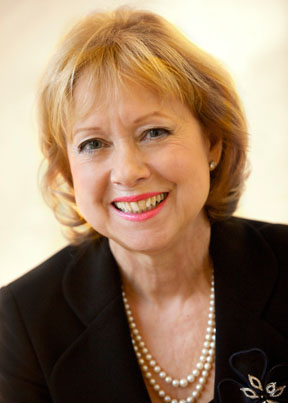So who is favoured to fill the seat on the Supreme Court of Canada left empty by retiring Justice Morris Fish?

Minister of Justice Rob Nicholson announced today the members of the selection panel to advise on filling the vacancy for the Quebec region resulting from Fish’s retirement.
Many say it should probably be a woman with a debate over whether the person will come from Montreal or Quebec City.
Front-runners frequently mentioned include justices Marie-France Bich, France Thibault, of the Court of Appeal of Quebec as well as appellate judges and former McGill University law deans Nicholas Kasirer and Yves-Marie Morisette.
Bich is recognized by some for her writing but also her “connection to reality,” as one Quebec commercial litigation lawyer told Legal Feeds. “Some of the other professors on the Court of Appeal bench tend to forget that.” She was one of the top names bandied about to fill last year’s opening after justice Marie Deschamps retired.
Thibault, who is from Quebec City is thought to be a more natural fit when Justice Louis LeBel exits due to mandatory retirement next year.
“People also mention the Chief Justice of Quebec, Nicole Duval Hesler,” says Sébastien Grammond, dean of the civil law section of the University of Ottawa. “There are others such as Justice Francois Doyon. Another question is could they take someone from the Federal Court of Appeal? This is a possibility often overlooked.”
Doyon has significant criminal law experience, as did Fish, and is considered to be “well liked.”
Grammond points out that Justice Marshall Rothstein, who is currently the only Supreme Court judge who also sat in the Federal Court of Appeal, will retire in 2015 so it might be seen as being time to have another judge from the Federal Court of Appeal.
“Then you might think about people like Robert Mainville or Johanne Trudel who are Quebec judges on the Federal Court of Appeal,” he says.
There is also the possibility someone could be appointed directly from practice.
“That’s more difficult to predict because I would say it’s not obvious that the qualities needed to be a quality practitioner are the same skills to be a good Supreme Court judge,” says Grammond. “It’s more difficult to point to a leading lawyer as someone who make a good Supreme Court judge but names like Guy Pratte come up.”
Pratte is now a member of both the Ontario and Quebec bar and is widely known and well respected for his commercial litigation practice as well as his work on a number of public inquiries.
The selection panel announced today includes five MPs:
• Jacques Gourde, Conservative Party of Canada
• Shelley Glover, Conservative Party of Canada
• Robert Goguen, Conservative Party of Canada
• Francoise Boivin, New Democratic Party of Canada
• Dominic LeBlanc, Liberal Party of Canada
The mandate of the selection panel is to review and assess a list of qualified candidates put forward by Nicholson in consultation with the prime minister, the chief justice of Canada, the chief justice of Quebec, the attorney general of Quebec, and prominent legal organizations, including the Barreau du Quebec and Canadian Bar Association.
The Justice minister has also received public input with respect to candidates who merit consideration.
The selection process for the new Supreme Court judges is as follows:
• Members of the selection panel will meet to review the resumes provided by each candidate as well as a number of reported judgments and publications.
• Consult with the chief justice of Canada, the chief justice of Quebec, the attorney general of Quebec, the Barreau du Quebec, the Canadian Bar Association, and any other prominent members or organizations of the legal community the committee thinks would be valuable.
• All deliberations by panel members and consultations with third parties will be confidential.
• The selection panel will provide an unranked list of three qualified candidates to Nicholson and Prime Minister Stephen Harper.
• Harper and Nicholson will select a nominee from that list.
• The nominee will appear at a public hearing of an ad hoc parliamentary committee.
The hearing process — considered by critics as nothing more than window dressing — was first established by Harper for the appointment of Rothstein in 2006 and repeated with the appointments of justices Andromache Karakatsanis and Michael Moldaver in 2011 and Richard Wagner in 2012.

 Minister of Justice Rob Nicholson announced today the members of the selection panel to advise on filling the vacancy for the Quebec region resulting from Fish’s retirement.
Minister of Justice Rob Nicholson announced today the members of the selection panel to advise on filling the vacancy for the Quebec region resulting from Fish’s retirement.